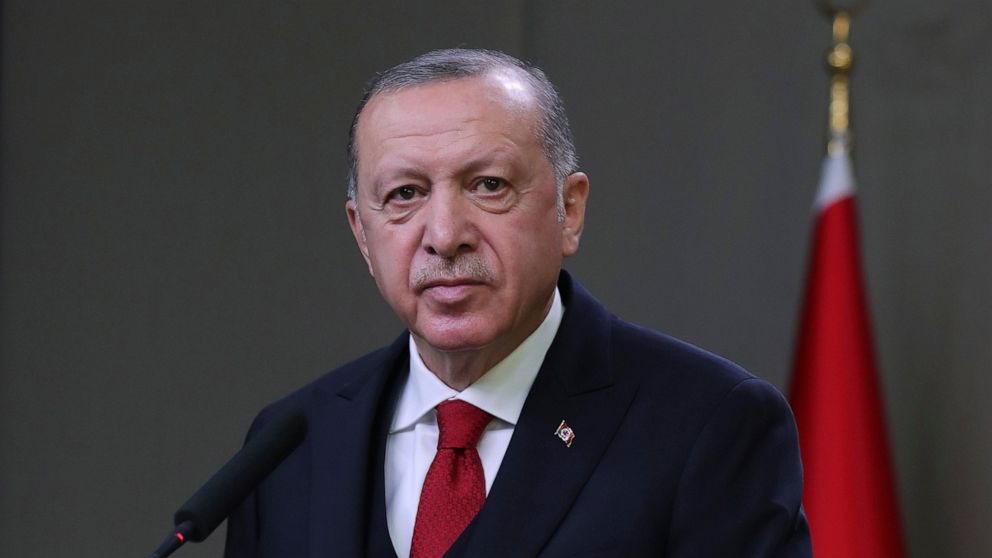BY: Begüm Burak*

PEJOURNAL – The founder of Turkish Republic Mustafa Kemal Ataturk’s conduct of state affairs and foreign policy vision approach was first declared in his 1931 speech during his tours of Anatolia. Atatürk’s saying “Peace at Home, Peace in the World” is seen as a central principle of the state administration and foreign policy steps. Unfortunately this vision has been undermined not only in Turkish scene but also in global scale. The world scale wars civil uprisings pose a big challenge peace in the world.
Due to her strategic geographical location and critical role as the only democratic and Muslim country in the Middle East Turkey since the establishment of the Republic up until today has faced lots of challenging developments in external relations and foreign policy steps. This piece is an attempt to make a summary of the foreign policy failures witnessed under the Justice and Development Party era (2002-2020). Some of these problems can even be seen as a challenge directed against Turkish state sovereignty.
The Hood Event
The Hood event occurred on July 4, 2003 following the US invasion of Iraq. On July 4, a group of Turkish military personnel operating in northern Iraq were captured and led away with hoods on their heads, and interrogated by the United States military officers. A phone call between the then Prime Minister, Recep Tayyip Erdogan, and the US Vice President, Dick Cheney is considered to have played a major role in the soldiers’ release. Erdogan called the Hood event “a totally ugly incident” and ordered the immediate closure of Harbur gate known as the vital roadway that links Turkey to Iraq. On the last day of the incident, the then Chief of the General Staff Hilmi Özkök declared that the Hood event had caused a “crisis of confidence” between United States and Turkey. Turkish newspaper headlines condemned the US forces and called them as “ugly Americans”.
The Mavi Marmara Incident
On 31 May 2010, Israeli forces killed nine Turkish citizens aboard the Mavi Marmara, the flagship vessel of a humanitarian flotilla headed for Gaza. Mavi Marmara was the lead ship in a six-vessel aid convoy. The ships carried aid to Gaza region. The ships were carrying 10,000 tones of goods, including school supplies, and two large electricity generators. On 4 June 2010, Turkish state-run news agency reported a possible trial against Israel in which a Turkish autopsy report would be used as evidence. On 29 June the İHH said that the attack on the flotilla was planned. In 2011, the UN panel concluded that the loss resulting from the use of force by Israeli soldiers was “unacceptable”.
SU-24 Fighter Jet Crisis with Russia
On November 24, 2015 a jet from Turkish Air Force shot down a Russian Sukhoi Su-24M attack aircraft near the Syria–Turkey border. According to Turkey, the aircraft was fired because it violated the borders after being warned before entering the airspace. This crisis is known as the first time a Russian aircraft has crashed in Syria since Moscow launched air strikes against opponents of Bashar al-Assad in September. In a letter to the UN Security Council, the then Turkey’s permanent representative Halit Cevik wrote that two aircraft of unknown nationality had approached Turkish airspace and later they were shot.
On 25 November the day after the Russian jet was shot down, a bill was introduced to the Russian parliament that would criminalize the denial of the Armenian Genocide. This was a political move that Turkey has strongly opposed.
Donald Trump’s Bizarre Letter
On 9 October 2019, US President Trump sent a letter to President Recep Tayyip Erdoğan. This letter was sent after US troops were pulled out of Syria. In the letter Trump said to Erdoğan: “Don’t be a tough guy. Don’t be a fool!” Trump also threatened to destroy Turkish economy if Syria invasion is not resolved. In the US, many observers questioned the legitimacy of the diplomatic language of the letter. Some called it a “joke” and an “embarrassment”. The Turkish presidential sources told BBC Turkish that “President Erdogan received the letter, thoroughly rejected it and put it in the bin.”
In a nutshell, it can be said that the foreign policy calculations and steps of Turkey have undergone substantial changes since its establishment by Atatürk. The principle of “Peace at Home, Peace in the World” is so hard to realize. The political culture, the identity of the ruling elites, the international context and economic factors all have played a role in shaping and changing Turkey’s foreign policy. Today Turkey has lots of challenging foreign policy issues to deal with. These include the PYD-PKK issue, S-400s, EU relations with the EU, Syrian war and the refugees, and so on.
*Dr. Begüm Burak – Istanbul-based researcher in French Institute of Anatolian Studies. In 2015, Ms. Burak got her PhD degree. During her occupation as a teaching assistant, she got engaged in short-term academic activities in Italy, the United Kingdom, Bosnia and Spain.